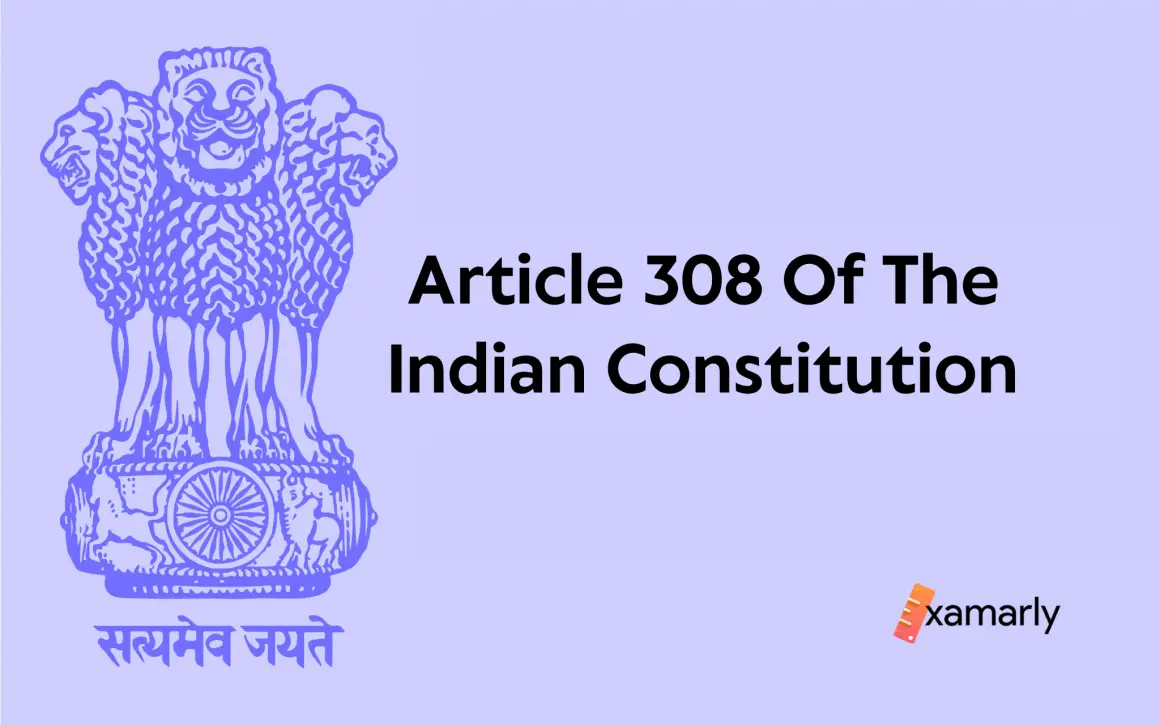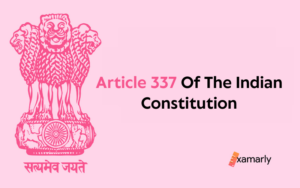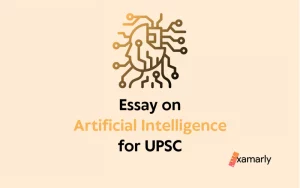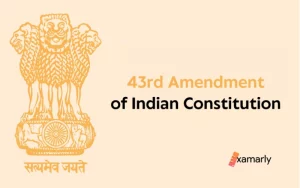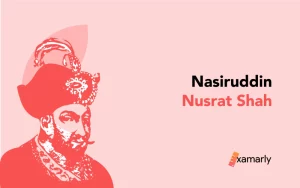Article 308 of the Indian Constitution is an interpretation clause of Part XIV of the Constitution that deals with the services under the Union and the States.
According to the Indian Constitution, there are three lists of powers and responsibilities that are divided between the Union government (the central government) and the state governments namely, Union List, State List, and Concurrent List.
The allocation of services is divided in such a way that Union Government has more control over the defense, foreign affairs, and national security, while the state government has more control over local services and infrastructure.
- What does Article 308 Of The Indian Constitution state?
- Part XIV Of The Indian Constitution – A Brief Overview
- Amendment Related To Article 308 of the Indian Constitution
- Conclusion
- FAQs Related To Article 308 Of The Indian Constitution
- What is the significance of Article 308 in the Indian Constitution?
- What is the context of Article 308 in the Indian Constitution?
- How does Article 308 of the Indian Constitution affect the State of Jammu and Kashmir?
- Is there any other provision of the Indian Constitution that deals with the status of Jammu and Kashmir?
- Does Article 308 of the Indian Constitution have any impact on the functioning of the government in Jammu and Kashmir?
- What is the significance of Part XIV of the Indian Constitution in relation to services under the Union and the States?
- What articles of Part XIV of the Indian Constitution deal with services under the Union and the States?
- How do the Union Public Service Commission and the State Public Service Commissions work together under Part XIV of the Indian Constitution?
- What is the All India Services Act and how does it relate to Part XIV of the Indian Constitution?
What does Article 308 Of The Indian Constitution state?
Interpretation.—In this Part, unless the context otherwise requires, the expression “State” does not include the State of Jammu and Kashmir.
Article 308 of the Indian Constitution states that in the Articles under Part XIV of the Indian Constitution, the term “State” does not include the State of Jammu and Kashmir unless the context of the document specifically states otherwise. This means that when the term “State” is used in this particular section of the document, it does not refer to the State of Jammu and Kashmir unless it has been clearly implied in the context.
You Might Also Like To Read Article 309 Of The Indian Constitution
Part XIV Of The Indian Constitution – A Brief Overview
Part XIV of the Indian Constitution is titled “Services Under the Union and the States” and contains provisions related to the organization and functioning of the civil services in India. This part of the constitution lays down the rules and regulations for the recruitment, appointment, and conditions of service of persons appointed to various posts in the civil services of the Union and the states.
Part XIV also provides for the protection of the rights and privileges of members of the civil services, and for the establishment of tribunals to resolve disputes related to their service conditions.
To learn more, read Article 311 Of Indian Constitution
Amendment Related To Article 308 of the Indian Constitution
Article 308 of the Indian Constitution, earlier known as Article 281 of the Draft Constitution of India was adopted into the Constitution on 7th September 1949.
At the time of adoption, Article 308 of the Indian Constitution stated:
In this Part, unless the context otherwise requires, the expression “State” means a State for the time being specified in Part I of the First Schedule.
However, The Constitution (7th Amendment) Act of 1956 replaced “means a State specified in Part A or Part B of the First Schedule” with “does not include the State of Jammu and Kashmir”.
Conclusion
In conclusion, Article 308 of the Indian Constitution is an important provision that clarifies the meaning of the term “State” in Part XIV of the Indian Constitution. It specifically states that the term “State” does not include the State of Jammu and Kashmir unless the context of the document specifically states otherwise.
This provision helps to ensure that the Indian Constitution is applied correctly and consistently in all regions of the country. It also highlights the unique status of Jammu and Kashmir within the Indian Union. This provision has been crucial in understanding the constitutional and political developments in Jammu and Kashmir.
Related Article – Article 310 Of The Indian Constitution
FAQs Related To Article 308 Of The Indian Constitution
What is the significance of Article 308 in the Indian Constitution?
Article 308 of the Indian Constitution is an important provision that clarifies the meaning of the term “State” in Part XIV of the Indian Constitution. It specifically states that the term “State” does not include the State of Jammu and Kashmir unless the context of the document specifically states otherwise.
What is the context of Article 308 in the Indian Constitution?
Article 308 of the Indian Constitution is found in Part XIV of the Constitution, which deals with relations between the Union and the States. It clarifies the meaning of the term “State” in this section of the document.
How does Article 308 of the Indian Constitution affect the State of Jammu and Kashmir?
Article 308 of the Indian Constitution specifically states that the term “State” does not include the State of Jammu and Kashmir unless the context of the document specifically states otherwise. This highlights the unique status of Jammu and Kashmir within the Indian Union and its constitutional and political developments.
Is there any other provision of the Indian Constitution that deals with the status of Jammu and Kashmir?
Yes, there are multiple provisions in the Indian Constitution that deal with the status of Jammu and Kashmir, such as Article 370 and Article 35A.
Does Article 308 of the Indian Constitution have any impact on the functioning of the government in Jammu and Kashmir?
Yes, Article 308 of the Indian Constitution plays a role in understanding the constitutional and political developments in Jammu and Kashmir and the relations between the Union and the States, which impacts the functioning of the government in Jammu and Kashmir.
What is the significance of Part XIV of the Indian Constitution in relation to services under the Union and the States?
Part XIV of the Indian Constitution lays out the framework for the distribution of powers and responsibilities for the administration of public services between the Union and the States. It includes provisions for the appointment, control, and disciplinary action of persons in public services.
What articles of Part XIV of the Indian Constitution deal with services under the Union and the States?
Articles 312 to 323 of Part XIV of the Indian Constitution deal with the Union Public Service Commission and the State Public Service Commissions, and their role in the appointment, control, and disciplinary action of persons in public services.
How do the Union Public Service Commission and the State Public Service Commissions work together under Part XIV of the Indian Constitution?
The Union Public Service Commission and the State Public Service Commission work together to ensure that appointments, promotions, and disciplinary actions in public services are made in a fair and impartial manner. The Union Public Service Commission has jurisdiction over appointments to services under the Union, while the State Public Service Commission has jurisdiction over appointments to services under the States.
What is the All India Services Act and how does it relate to Part XIV of the Indian Constitution?
The All India Services Act is a law passed by the Indian Parliament that provides for the creation, composition, and functions of the All India Services, which are services that are common to the Union and the States. It relates to Part XIV of the Indian Constitution by providing the legal framework for the administration of these services.


